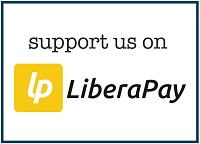Cure By Suicide
Todd Hayen
One of the cool things (or so it seems) about Canada is National Health Care. A bad thing that comes with it (among many) is the government can, and will, stick its nose into your personal health business. One of these invasions is offering people a way to easily, and painlessly, end their life—assisted by the Canadian Health Care system. Now, I am not going to get into the pain and suffering of terminally ill patients—the ones with cancers that cannot be cured, or even managed, that are causing indescribable pain. Whether these people should or should not be offered a decent and dignified way to end their suffering is not the topic of this article.
But what if that offer is also presented to people whose sole medical condition is mental illness? What if it is depression, or anxiety, or bipolar, or schizophrenia, or ADHD that is causing “intolerable pain and suffering?” Should these types of illnesses, and the people suffering them, be not only offered, but affirmed, and supported, in a journey to end their lives—all wrapped up and paid for by the government?
Well, believe it or not, that is what is on the table in Canada. The program is called MAiD (Medical
Assistance in Dying—of course we have to have a fancy acronym, don’t we?) and it is taking my profession, psychotherapy, by storm. You see, one of our unshakable prime directives is to do whatever is possible to keep a patient alive. Yes, we see many people who are on the verge of suicide, and it is the number one thing that is drilled into our heads in therapy school—do not let that happen.The MAiD program does not yet cover “mental health as the sole disease” that warrants an assisted suicide, but it is on the docket to include mental illness this coming March. (Or so I thought, a colleague sent this link to me this morning (August 15, 2023). Chilling indeed.
My psychotherapy governing body, the CRPO (College of Registered Psychotherapists of Ontario) is already putting out feelers to their membership to see if we are warming up to such an option for our patients. Some of the questions on the survey they just sent out to all of us are similar to: “If MAiD is implemented to include mental health illnesses, and you have a patient who wants to utilize the program, will you be affirming in their decision and help them through the process?” “Hell no!” was my answer. I think all of this is unconscionable. It is wicked and nefarious, especially if you are aware of what is truly behind all of this—and it ain’t to help people either, you can bet your sweet bippy on that.
Suicides are actually going up. They took a little dip during Covid for several understandable reasons, but then headed up with a vengeance and are now at an all-time high. What better way to continue the trend by offering free assistance to those who are finding all of this insanity too much to bear? Those of us near the bottom of the rabbit hole know clearly that part of the agenda is to reduce the population of the world. Expecting people to do the job themselves may not seem very efficient. But think again. So much of this campaign is to basically strip the human race of its humanity. This is accomplished through humiliation, depression, hopelessness, and despair. It is accomplished through the establishment of a sense of “who cares” or “I might as well go considering there is no one willing to help me.”
It is a known fact that much depression we see documented is from impoverished populations. Having no place to live, hungry mouths to feed, and little assistance from welfare programs would make anyone depressed. Why isn’t money available to help these people? The national health system in Canada does not financially cover the services of registered psychotherapists or clinical psychologists, who do the bulk of mental health work. So why are they so anxious to help people pack it in if they can’t deal with their problems? Why don’t they pay for more mental health services instead, so these people can get therapeutic assistance?
And, considering the genocide intention, offering an easy way to off oneself is a good investment. When the sh-t hits the fan, people will be lining up for the lethal injection, like sheep to the literal slaughter. More organs and blood and other body parts for the elite—sorry for being so macabre, but I doubt if that is far from the truth. We are all “useless eaters,” after all.
Any government-regulated body that licenses individuals to practice a particular “controlled act” (such as psychology, psychotherapy, medicine, etc.) will be calling up their members to be the state’s agents and facilitate the state’s agendas. Psychotherapists have already been mandated to affirm sexual identity. If a man born as a male believes he is a woman (not “merely” homosexual) then we are required to affirm that identity and no longer treat it as a dysmorphia or cognitive distortion. The same will probably now happen with suicidal ideation. We will be mandated to support these ideations when we have been trained specifically to treat them as mental aberrations.
And what about the religious and moral implications of all of this? Of course, that is part of the agenda as well, to strip humanity of any moral underpinning and certainly to strip it of any belief in God or a supreme intelligence, or however one wishes to define the higher mysteries of reality.
The history of suicide is long and varied, and the advent of Abrahamic religions—Judaism, Christianity, and Islam—marked a significant shift in the perception of suicide. In these faiths, suicide came to be largely condemned, rooted in the belief in the sanctity of life as ordained by a higher power.
Judaism regarded life as a divine gift, and suicide was often seen as a violation of this sacred gift. Christianity, influenced by the teachings of Jesus Christ, emphasized compassion, selflessness, and the sanctity of life. Early Christian writings like the Didache and the Letters of Ignatius condemned suicide as a rejection of God’s providence and a refusal to endure suffering.
Islamic perspectives on suicide were also shaped by theological beliefs. In Islam, life is considered a trust from Allah, and taking one’s own life is viewed as a grave sin. However, some interpretations consider the circumstances of the individual, such as mental illness, which might impact the moral assessment of suicide.
Clearly from a religious or spiritual perspective, suicide is a bad move. Although, again, we as a culture can be compassionate regarding physical, and typically terminal, diseases that cause a lot of pain and suffering. When it comes to mental health, it is a bit of a different story.
I would never judge someone who takes his or her own life. Any situation that warrants such an extreme act is complex and often ineffable. But when it comes to mental health, I have always believed that suicide is a permanent solution to a temporary problem. No one can assess if a deeply troubling mental illness will turn around. There may be some forms of depression that cannot be resolved, but the majority of them can be. There may be other illnesses of the brain that can cause depression, psychosis, and anxiety that create a lifetime of misery, but most of those are physiologically based—brain damage, disease, and the like.
But if the state comes to establish a policy stating if a person meets a certain set of objective criteria (therefore not nuanced enough to reveal all that should be revealed), they will be afforded a state-run program designed to end their life easily, and affordably, you can count me out. I won’t be “affirming” any such thing, and will never encourage someone with a mental illness to end their life.




No comments:
Post a Comment